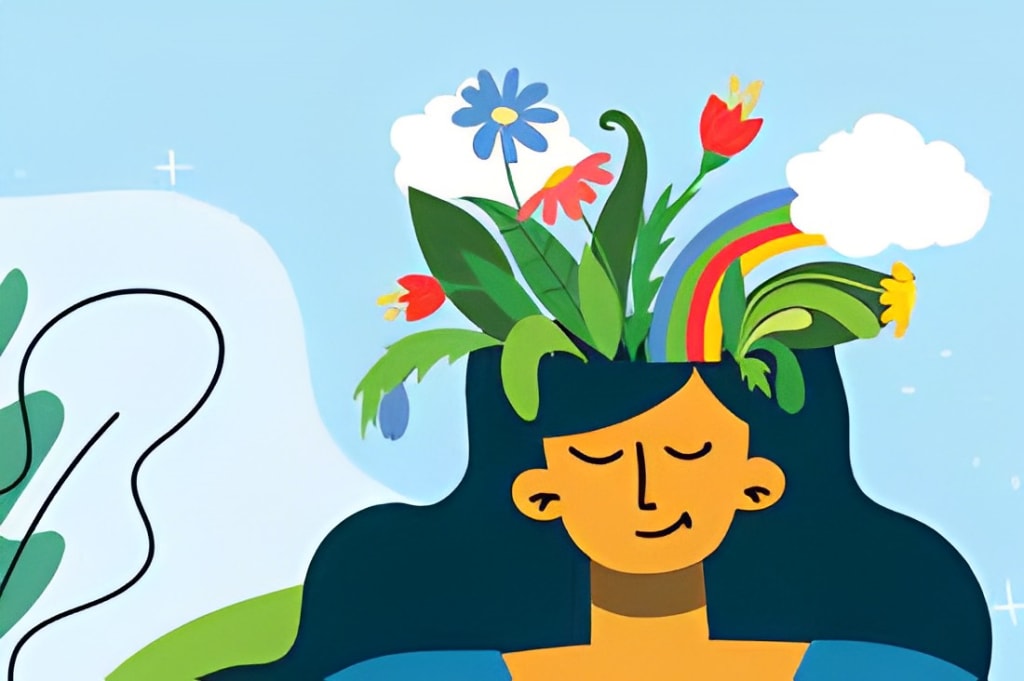
Nature has always held a special place in our hearts. Whether it's the awe-inspiring beauty of a serene forest, the calming sound of waves crashing on the shore, or the vibrant colors of a blooming garden, the outdoors has an undeniable ability to captivate and heal us. In recent years, there has been a growing body of research highlighting the incredible benefits that nature offers to our well-being. From improved mental health to enhanced physical vitality and longevity, the healing power of the outdoors is truly remarkable. In this article, we will delve into the surprising benefits of nature and explore how it can positively impact our lives.
Mental Health Benefits of Nature
One of the most profound effects of nature is its ability to improve our mental health. Spending time in natural environments has been shown to reduce stress and anxiety levels significantly. The peacefulness and tranquility of nature create a sense of calm that helps us unwind and disconnect from the pressures of daily life. Research also suggests that exposure to nature can enhance our mood and overall mental well-being, contributing to a greater sense of happiness and contentment.
Moreover, nature has a unique way of stimulating our creativity and cognitive function. Being surrounded by natural beauty sparks our imagination and opens our minds to new ideas. It's no wonder that many writers, artists, and innovators seek inspiration from the natural world. Additionally, studies have found that spending time in nature can act as a natural antidepressant, alleviating symptoms of depression and promoting a more positive outlook on life.
Physical Health Benefits of Nature
While the mental health benefits of nature are well-known, its impact on our physical well-being is equally remarkable. Engaging with nature encourages physical activity, whether it's hiking through scenic trails, swimming in a crystal-clear lake, or simply taking a leisurely stroll in a park. Regular physical activity in natural settings not only improves cardiovascular health but also boosts our immune system, making us more resistant to illnesses and infections.
Nature has also been found to have a positive effect on our blood pressure and heart rate. Research indicates that spending time in green spaces or even viewing nature scenes can lower blood pressure levels and reduce the risk of heart disease. Furthermore, nature has a remarkable ability to accelerate healing and reduce pain. Patients who have access to natural views from their hospital rooms tend to recover faster and require less pain medication compared to those with no such exposure.
Nature and Stress Reduction
Stress has become an all-too-common companion in our modern lives, wreaking havoc on our health and well-being. Fortunately, nature offers a sanctuary from the stressors of daily life. The restorative effects of nature have been well-documented, with studies showing that spending time in natural environments can help reduce stress and its detrimental effects on our bodies.
Nature-based stress reduction techniques, such as mindfulness meditation in natural settings or practicing yoga outdoors, have gained popularity for their ability to promote relaxation and inner peace. Additionally, the Japanese practice of "forest bathing" has gained recognition worldwide for its remarkable stress-reducing benefits. Forest bathing involves immersing oneself in the sights, sounds, and smells of the forest, allowing the natural environment to soothe and rejuvenate the mind and body.
Nature and Mental Restoration
In our fast-paced, technology-driven world, our attention spans are constantly being pulled in multiple directions. However, nature provides a much-needed respite for our weary minds. According to attention restoration theory, exposure to natural environments promotes the restoration of our cognitive abilities and enhances our ability to concentrate and focus.

Nature acts as a natural reset button for our overstimulated minds, allowing us to recharge and restore our mental energy. Whether it's taking a short walk in a nearby park during a work break or immersing ourselves in a weekend getaway to a picturesque natural setting, nature offers us the opportunity to escape the constant demands of our digital lives and reconnect with our inner selves.
Nature and Emotional Well-being
In our quest for happiness and emotional well-being, we often overlook the simple yet profound impact that nature can have on our emotions. Nature has a unique way of uplifting our spirits and boosting our mood. The beauty and serenity of natural landscapes have a calming effect on our minds, alleviating feelings of anxiety and sadness.
Moreover, spending time in nature allows us to develop a deeper connection with the natural world. This connection has been found to promote emotional well-being and a sense of belonging. When we immerse ourselves in nature, we become more aware of the interconnectedness of all living beings and develop a greater appreciation for the beauty and wonders of the Earth.
Engaging in outdoor activities, such as hiking, gardening, or even simply picnicking in a park, can bring us joy and a sense of fulfillment. These activities allow us to be present in the moment, to savor the small pleasures of life, and to experience a sense of freedom and adventure. Nature has a way of reminding us to slow down, to appreciate the simple things, and to find joy in the beauty that surrounds us.
Nature and Physical Well-being
In addition to its impact on mental and emotional well-being, nature also plays a crucial role in promoting our physical health. Outdoor exercise has been shown to have numerous benefits for our bodies. Whether it's jogging on a trail, cycling through scenic routes, or practicing yoga in a park, exercising in natural environments provides a refreshing change of scenery and invigorates both the body and the mind.
Furthermore, exposure to natural environments can have a positive impact on our immune system. Studies have found that spending time in nature increases the production of natural killer cells, which play a crucial role in defending our bodies against diseases and infections. The fresh air, the vitamin D from sunlight, and the phytoncides released by trees all contribute to strengthening our immune system and improving our overall health.
Nature and Healing Environments
Recognizing the healing power of nature, designers and healthcare professionals have begun incorporating natural elements into healing environments. Biophilic design, which integrates nature-inspired elements into buildings and spaces, has gained traction for its ability to improve patient outcomes and well-being.

Healing gardens and therapeutic landscapes are designed to provide a tranquil and nurturing environment for patients, caregivers, and healthcare professionals alike. These spaces offer a retreat from the sterile hospital environment, allowing individuals to connect with nature and experience its calming and rejuvenating effects. Research has shown that exposure to nature in healthcare settings can reduce stress, accelerate healing, and enhance the overall well-being of patients.
Nature and Children's Development
Nature is not only beneficial for adults; it plays a vital role in children's development as well. Outdoor play and exploration provide valuable opportunities for children to engage their senses, develop their cognitive abilities, and foster a sense of curiosity about the natural world.
Research has shown that children who regularly spend time in nature have improved cognitive function, attention span, and problem-solving skills. Nature-based education and learning environments offer a holistic approach to education, allowing children to connect with nature, learn about the environment, and develop a sense of environmental stewardship from an early age.
Nature and Social Connections
Nature has a remarkable ability to bring people together and foster social connections. Outdoor activities and group outings in natural settings create opportunities for individuals to bond, collaborate, and build stronger relationships. Whether it's a family gathering at a park, a group hike with friends, or a community gardening project, these shared experiences in nature strengthen social ties and create a sense of community.
Outdoor recreation also plays a crucial role in promoting community well-being. Parks, trails, and recreational areas serve as gathering places where people from all walks of life can come together to engage in physical activities, enjoy nature, and forge connections. The sense of camaraderie and shared experiences in these natural settings contribute to a greater sense of belonging and social well-being.
Accessible Nature for All
While nature offers incredible benefits, access to it is not always equal for everyone. Barriers such as physical disabilities, lack of transportation, or limited financial resources can prevent individuals from fully experiencing the healing power of the outdoors. However, efforts are being made to make nature more accessible and inclusive for all.
Urban green spaces and city planning play a crucial role in ensuring that nature is within reach for urban dwellers. Creating parks, gardens, and green infrastructure in cities provides opportunities for residents to connect with nature without having to travel long distances. It also contributes to the overall livability and well-being of urban communities.
Nature-based programs specifically designed for marginalized communities are also making a difference. These programs aim to break down barriers and provide opportunities for individuals from diverse backgrounds to engage with nature. Whether through nature-focused education initiatives, community-led conservation projects, or subsidized outdoor recreation programs, these efforts are empowering individuals who may have limited access to nature to reap its benefits.
Equitable distribution of nature's benefits is a crucial goal. It is essential that everyone, regardless of their socioeconomic status, race, or ability, has the opportunity to experience the healing power of the outdoors. By prioritizing accessibility and inclusion in nature conservation and urban planning efforts, we can ensure that the benefits of nature are available to all.
Nature's Impact on Aging and Longevity
As we age, the benefits of nature become even more valuable. Engaging with nature can significantly enhance the well-being and quality of life for older adults. Nature provides opportunities for physical activity, social connection, and mental stimulation, all of which are essential for healthy aging.
Research has shown that regular exposure to nature has a positive impact on cognitive health in older adults. Nature walks, gardening, and other outdoor activities stimulate the mind, improve memory, and contribute to better overall cognitive function. Additionally, the tranquility and beauty of natural environments promote relaxation and reduce stress, which is especially beneficial for older adults who may face various health challenges.
Nature-based interventions are also gaining recognition in elderly care settings. Programs that incorporate nature, such as horticultural therapy or nature-based reminiscence activities, have shown promising results in improving mood, reducing agitation, and enhancing the overall well-being of older adults. Nature has the power to bring joy, comfort, and a sense of purpose to the lives of seniors, contributing to their overall happiness and longevity.
Exploring Nature Therapies
The healing power of nature has given rise to various nature-based therapeutic approaches. Ecotherapy, also known as nature therapy or green therapy, involves using nature as a therapeutic tool to promote mental, emotional, and physical well-being. It encompasses a wide range of activities, such as outdoor counseling sessions, nature walks, wilderness retreats, and nature-based art therapies.
Wilderness therapy is another form of nature-based intervention that combines adventure activities and outdoor experiences to promote personal growth and healing. It is often used as a therapeutic approach for individuals facing mental health challenges, addiction, or behavioral issues. Wilderness therapy programs provide a structured environment in nature where participants can learn life skills, develop resilience, and gain a deeper understanding of themselves and their relationship with the natural world.
Animal-assisted therapy is another powerful nature-based modality that utilizes the healing presence of animals in natural settings. Interacting with animals in a natural environment has been shown to reduce stress, increase social interaction, and improve overall well-being. From equine therapy to dolphin-assisted therapy, these interventions harness the therapeutic power of animals and nature to facilitate healing and growth.
The Importance of Conservation
As we explore the healing benefits of nature, it is vital to recognize the importance of conservation and preserving our natural spaces. Human well-being is intricately linked to the health of the environment. Conservation efforts are crucial to sustain biodiversity, protect ecosystems, and ensure that future generations can continue to benefit from the healing power of the outdoors.
Conserving natural spaces not only provides habitats for diverse plant and animal species but also preserves the beauty and ecosystem services that nature provides. From clean air and water to soil fertility and climate regulation, healthy ecosystems are essential for our survival and well-being. By protecting and conserving natural areas, we ensure that future generations can continue to access and benefit from the healing power of nature.
Individuals can contribute to conservation efforts by supporting local environmental organizations, participating in community clean-up initiatives, and advocating for sustainable practices. Making conscious choices in our daily lives, such as reducing waste, conserving energy, and supporting environmentally responsible businesses, also play a significant role in preserving our natural resources.
In conclusion, the healing power of the outdoors is a remarkable and often surprising phenomenon. From improving mental health and emotional well-being to promoting physical health and fostering social connections, nature has a profound impact on our lives. By immersing ourselves in natural environments, we can experience the restorative and rejuvenating effects that nature provides.
As we continue to explore and understand the benefits of nature, it is crucial to ensure that everyone has equal access to these healing opportunities. Efforts should be made to make nature more accessible and inclusive for all individuals, regardless of their background or abilities.
Moreover, nature-based therapies and interventions offer additional avenues for harnessing the healing power of the outdoors. Ecotherapy, wilderness therapy, and animal-assisted therapy are just a few examples of how nature can be integrated into therapeutic practices to promote well-being and personal growth.
Lastly, conservation plays a vital role in preserving our natural spaces and ensuring that future generations can continue to benefit from the healing power of the outdoors. By supporting conservation efforts and adopting sustainable practices in our daily lives, we can contribute to the protection of our environment and the well-being of our planet.
In a world that often pulls us away from the tranquility and beauty of nature, let us remember the surprising benefits that await us outdoors. Take a step outside, breathe in the fresh air, immerse yourself in the sights and sounds of nature, and allow its healing power to work its magic on your mind, body, and soul.
FAQs (Frequently Asked Questions)
1. Can spending time in nature really improve my mental health?
A: Absolutely! Research has shown that spending time in nature can significantly reduce stress, anxiety, and symptoms of depression. Nature has a calming effect on the mind, promoting relaxation and overall mental well-being.
2. How much time should I spend in nature to experience its benefits?
A: Even brief interactions with nature can have a positive impact. Aim for at least 20-30 minutes of outdoor time each day, whether it's a walk in the park, gardening, or simply sitting in a natural setting.
3. What if I don't have access to green spaces or natural environments?
A: While it's ideal to have direct access to nature, there are still ways to benefit from its healing power. Consider bringing plants indoors, creating a small garden on your balcony, or even watching nature documentaries to immerse yourself in the beauty of the natural world.
4. Can nature-based therapies replace traditional forms of therapy?
A: Nature-based therapies can complement traditional forms of therapy and provide additional benefits. However, it's important to consult with a healthcare professional to determine the most appropriate therapeutic approach for your specific needs.
5. How can I contribute to nature conservation?
A: There are many ways to contribute to nature conservation. You can support local environmental organizations, participate in community clean-up initiatives, practice sustainable living, and advocate for policies that protect natural areas. Every small effort counts in preserving our precious natural resources.
About the Creator
Aditi
I Love to Write, I hope you love to read






Comments
There are no comments for this story
Be the first to respond and start the conversation.